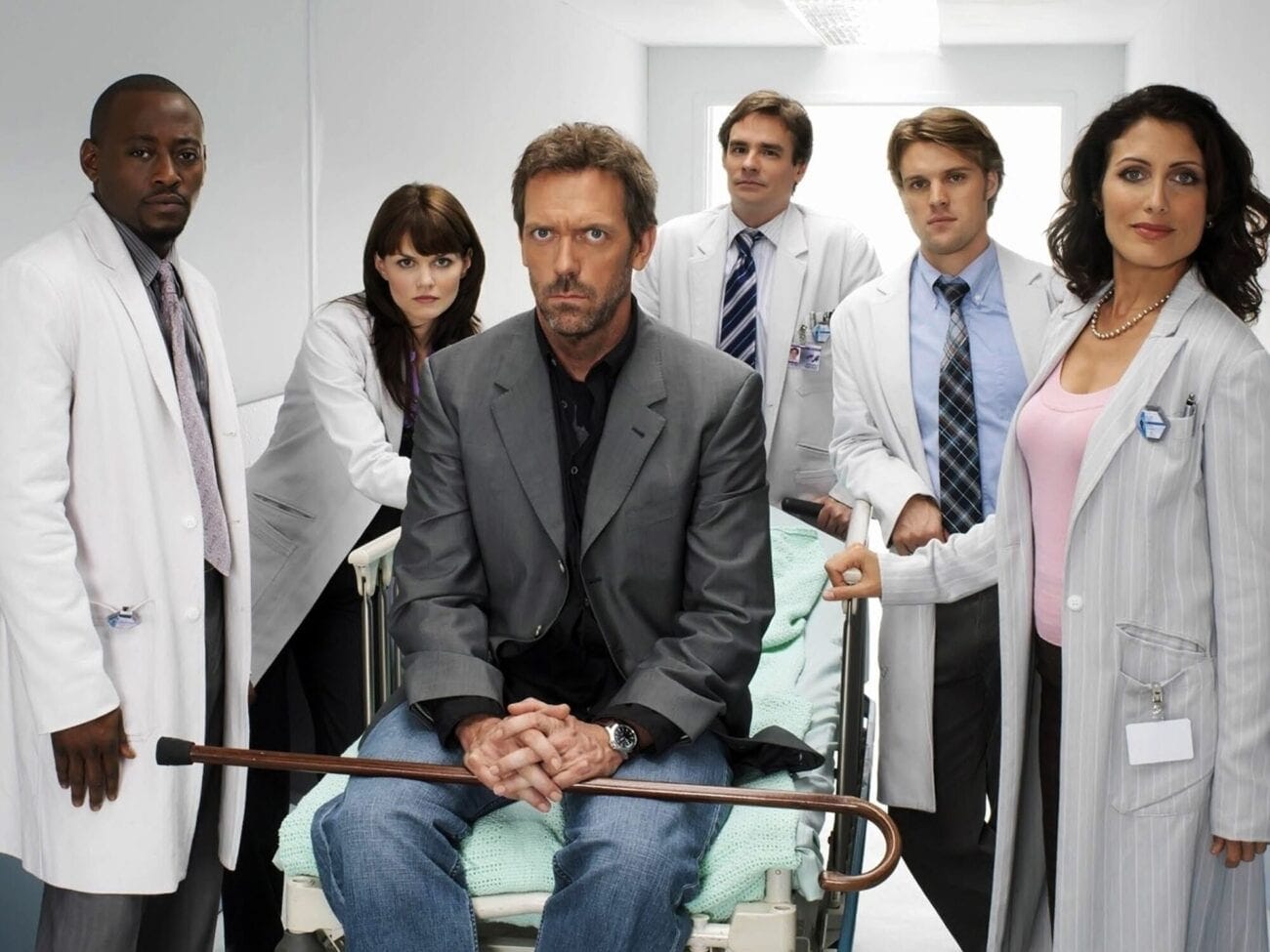House, M.D.
The leg and cane, those are just metaphors; not the pills.
When I was younger I wanted to be a doctor, mostly thanks to watching House; instead I decided to model myself on him, which has been somewhat successful yet always limited by the fact I'm too soft for that; but perhaps he was, too; who knows. Anyway, I wanted to find whatever it was which ailed my father; it seemed the two worlds collided when the same cancer as he had featured in an episode. The patient was a death row inmate, sentenced to die for the several people he had killed; and the cancer, that which my father had—this might have made him do it. My father said to me and my mother: “See, I wasn’t so bad.”
I struggle to tell stories because everything is fragmented for me; there's nothing between these two, no whole in which they're united. My life is stored in the same subsystem which once stored an encyclopedic knowledge of Simpsons references. The same model: cue, association, reference—no context. For a while I wanted to figure myself out, that was the next aim; and so I went from health sciences to psychology. Along the way, I proved myself by getting into law school and then I proved to my father that I was still myself by slumping until I dropped it; now instead my aim is to be entirely unemployable, or that's what I tell people.
At one point my then girlfriend was in bed with me, and somehow the topic of imagination came up; and she mentioned hers in a way that I hadn't heard before. I always felt somehow strange, that I wasn't stupid yet there were huge and unexpected difficulties; that somehow everything worked a little differently in a way that made it hard to mesh. I didn't understand time, say, or I couldn't remember all the expensive holidays; or thankfully, all the traumatic memories; or whether I even had them; or whether I was the same person as the day before. Some days I doubted my own existence; certainly that of myself as a cohesive whole. I have come to accept this fuzziness since realising that, whatever the state of my brain, my mind is Swiss cheese.
A dear friend says this can be seen in the photographs I take, and even those that I appreciate; in that they are always single objects framed by blank backgrounds. The same is my sense of self, or for such thinkable elements as would usually constitute a self; yet for me are free-floating in the abyss. I don't say any of this to ask for pity; it is interesting and, despite various fears, I have come to accept it; even appreciate it, in a sense. There are far worse things, or are they all connected? I have little understanding of anything, despite the amount of time I spend on it all. Much of my work at university has been motivated by a peculiar flavour of idiocy, one in which I feel a need to explain the obvious. There is a career in philosophy for any idiots such as these; it is the language game.
Here I've taken this off-track, ended up somewhere else entirely; yet I couldn't say for certain that this wasn't the only way through. I'm reluctant to edit, and to start again would be to stop, so instead I'll keep thrashing through and hope to come out the other side. I had an idea initially of where this was meant to go but—well, here we are; this wasn't it.
I was trying to give a neat outline, to express a little image: that I wanted to be a doctor to figure out my father, that this was transposed to figuring myself out; that these are the same; that I have transposed my father’s ailments upon the world and instead sought to understand that; that I am now more doctor of metaphysics than a doctor of medicine; and that—what? I thought this an interesting image; perhaps it will be someday.
There is no ‘figuring oneself out,’ as if I were a mechanism which the proper application of force in a carefully calculated position might somehow—what? I don't even know what I would want. Say I want to be like Kant: a rational being. I am an irrational being, as is most everyone other than Kant; another friend wants to write a paper titled, ‘Did Kant have feelings?’—as I recall, the argument is that he didn't. They say you could set your clock by Kant’s daily walks. That’s what I want. I want to be ruled by reason as much as the railway system, as much as Kant, as much as my father.
Except he isn't ruled by reason, of him I see that the constant motion is channelled away rather than towards. He has certainly been successful, no doubt; but always he is moving away—from pain, whether emotional or physical; it's all the same, always away. I've never seen him stop except to fall asleep. Always he has to be doing something, right up until the point at which he keels over incapable of any more and lays exhausted for days until—repeat. The same cycle his whole life; and as it turns out, that sort of attitude will get you paid.
I am the same but less mercenary; or it is that for me money isn’t real, that is what he wanted to give his family; a monkey’s paw! Of course, money wasn't really real for him either; all he wanted was to provide; all he knew was to provide. He was a provider, just like the Scottish merchant sailor who adopted him and beat his mother; who he once bottled and then fled from; who somehow he still emulated all the way. Against his biological father, that relation seems to be one of reaction: his father left and died unceremoniously—that he would not do the same; so he stayed, still stays, some say will never die.
When my father talks of troubles or awful things that have happened to him, there is always a sense he’s talking about someone else; as if he were at a remove from himself. Sometimes I will catch his face in mine, or mine in his; or the form of it in me; and when I speak of such things, then I am as him also. This is the truth of reincarnation, that we inherit shadows. Now I am him and he is me; and he is dying. Here I am—all for what? I haven't been able to help myself; and yet I look with frustration at him, all the while thinking him a coward. “If I only knew where this shadow was, if only I could remember,” I tell myself, “then I would confront it; he won't because he is weak.”



